Cannes 2010 Daily Blog
Day 11: Frankenstein, Gainsbourg and Au Revoir!
Total Film has waded its way through some heavy-going films in the last couple of weeks. The joyless My Joy and the dust-dry Princess Of Montpensier , to name but two.
But we now have an outright winner of this year’s Palme b’Or(e).
Szelid Teremtes – A Frankenstein Terv (aka Tender Son – The Frankenstein Project ) is a radical re-jigging of Mary Shelley’s classic horror yarn.
It’s bold. It’s uncompromising. It makes drying paint look like Avatar in IMAX 3D.
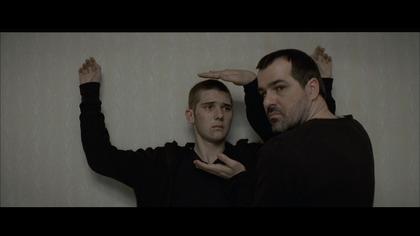
It’s from Hungarian director Kornel Mundruczo, whose Johanna (2005) retold the Joan Of Arc story as an opera set in a modern-day hospital.
His latest sounds equally intriguing on paper. The writer/director plays a filmmaker struggling to find the right actors for his new film.
Into one casting session walks Rudi, a 17-year-old recently released from an institution. He’s also, unbeknown to the director, his long-lost son.
The audition goes well, but then the boy commits a terrible act. The director discovers the truth of the boy’s background and has to wrestle with the responsibility of siring a monster.
Sounds promising, right? The early going offers reasons to be hopeful – notably an amusing audition sequence that sees a bunch of (no-)hopefuls attempting to cry on cue.
Bringing all the latest movie news, features, and reviews to your inbox
But as the mood darkens, the pace turns to treacle and any prospect of emotional engagement evaporates. All we’re left with are some imposing snowscapes and a couple of sudden violent shocks, including one straight out of Michael Haneke’s Hidden.
If only Mundruczo had the Austrian director’s cruel gift for tightening tension.
With his affinity for freaks and fiends, jury president Tim Burton may find some affection for Frankenstein .
Alas, your correspondents left the screening baffled by its inclusion in Competition, especially over some of the fare we’ve enjoyed in other sections ( Blue Valentine, Kaboom – hell, Wall Street 2 ).
At last year’s Cannes, the Best Actress award went to Charlotte Gainsbourg for her laid-bare-in-every-sense performance in Antichrist .
She’s back this year in out-of-competition festival closer The Tree which, while infinitely less challenging than Lars Von Trier’s psycho-drama (emphasis on the ‘psycho’), is well tailored to her facility for emotional fragility.
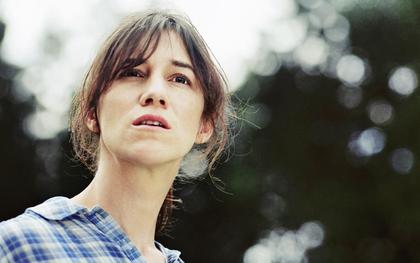
Gainsbourg plays Dawn, a mother of four living in the Aussie Outback who’s suddenly faced with single parenthood when her husband dies of a heart attack.
The family’s house sits in the imposing shadow of a colossal fig tree, which eight-year-old Simone (Morgana Davies) believes is now home to her late father’s spirit.
Is there some truth in her fantasy? When Dawn starts over with local bit of rough George (Marton Csokas), branches smash through bedroom windows and roots attack foundations.
Though it looks like it could get very sticky, there isn’t too much sap in The Tree . The male characters are thumbnail sketches, but the female ones are memorable.
Davies makes a headstrong impression as Simone, while Gainsbourg brings plenty of strength and sensitivity to the table.
A conventional tale of death and re-birth to be sure, but director Julie Bertuccelli ( Since Otar Left ) handles the material with a sure, light hand.
So that was Cannes 2010 – whichever way you slice it, one of the most underwhelming years in the festival’s history.
Still, there were a few diamonds in the rough – my favourite being the gloriously out-there Uncle Boonmee Who Can Recall His Past Lives, followed by the likes of Kaboom, The Housemaid, Outrage, Biutiful and Another Year which, along with most other folk, I’m tipping for the Palme d’Or. Over to Jamie for his top picks…
Sorry, I forgot to say my fond farewells yesterday, when I signed off. Let it be known that I will of course miss you all, even if I won’t miss the festival itself too much, given the weak line-up and the lack of buzz swarming the Croisette.
Anyway, my pick of the festival was Mike Leigh’s Another Year , an organic drama full of warmth, humour and raw pain, and I’d follow it closely with the gorgeous-looking, quite incomprehensible curio Uncle Boonmee Who Can Recall His Past Lives .
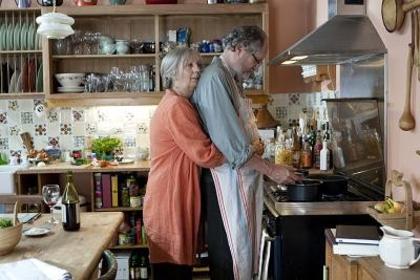
Blue Valentine , playing in Un Certain Regard, deserves a mention also - primarily for the terrific interplay between Ryan Gosling and Michelle Williams.
The Palme d’Or is surely a three-horse race between Another Year, Uncle Boonmee and monks-and-terrorism movie Des Hommes Et Des Dieux . Leigh’s Secrets & Lies scooped the Palme d’Or in 1996 and he also won Best Director for Naked in 1993, so perhaps his previous victories will weigh against him – but I’ll tip him anyway.
Who gets your vote for the top prize? Leave a comment!
- Matthew Leyland, Jamie Graham
Day 10
Ken Loach's Route Irish was a last minute entry to competition and you have to wonder why all the fuss to get it in.
Visually flat, dour, and featuring a lot of British TV actors, it plays like a Hollywood thriller shot in the kitchen sink and threatens to go down the plughole, fast.
Fergus (Mark Womack) and Frankie (John Bishop) are best mates since they were kids, and together they head off to Iraq, where Frankie witnesses the trigger-happy massacre of an Iraqi family. He threatens to talk. A couple of weeks later, he's dead.
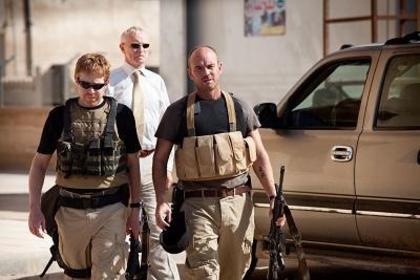
Murder? Cover up? Part of a bigger conspiracy? After the funeral back in Liverpool, Fergus sets about finding out, his investigation retracing Tommy Lee Jones' footsteps through the valley of Elah.
Our hero shouts a lot. Mobile phones are snapped to ears for frantic conversations. There is a particularly harrowing torture scene involving water-boarding (the film's standout sequence). A car bomb explodes.
Yet for all its propulsion the plot fails to go anywhere and the characters are not fleshed out enough to care about.
Route Irish is by no means terrible but it is a smudge on the director's impressive CV (Kes, Raining Stones, My Name Is Joe, Sweet Sixteen). With its cheap, grubby visuals, it's really not that much better than the early thrillers of Michael Winner, before he went from bad to terrible.
In a year lacking great pictures and name directors, it's perhaps understandable that the festival organisers wanted a previous Palme d'Or winner ( The Wind That Shakes The Barley , 2006) with more than 40 years of cinema in his pocket.
But if this was a film by an unknown director, it might well struggle to get a decent theatrical release, never mind entry to the world's premier film festival.
From Apichatpong Weerasethakul, the Thai director of the rambling, whacked-out and really rather wonderful Tropical Malady and Syndromes And A Century , comes the evocatively titled Lung Boonmee Raluek Chat ( Uncle Boonmee Who Can Recall His Past Lives ).
It's rambling, whacked-out and really rather wonderful.
What it all means is anybody's guess, but it involves Uncle Boonmee (Thanapat Saisaymar) being visited by various curious spirits as he prepares for death.
Living out his last days in a lush, dense forest, Boonmee cracks an infectious grin when his dead wife appears to nurse and reassure him. Then his deceased son turns up as a monkey-ghost. Yes, a monkey ghost, his DIY outfit looking like Lon Chaney's Wolf Man suit topped off with the red glowing eyes of a T800.
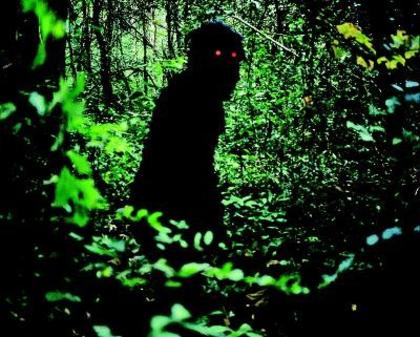
Gathering his family about him, Boonmee treks through the forest to a cave, the scene of his first birth (for, as the title suggests, he has had many lives).
Western viewers will be both enraptured and repelled by the unfamiliar mythologies and the snail-through-treacle pacing. Go with it, though, and Uncle Boomee Who Can Recall His Past Lives casts a hypnotic spell.
Scored by incessantly chirruping crickets, it's also gorgeous to look at, the colours softened and enriched and lent a silvery shimmer, as if the whole film has been dipped in mercury.
It's funny, too. A woman asks the monkey-boy, "Why have you let your hair grow so long?" And when Boonmee introduces his dead son to his living nephew, the wide-eyed boy looks long and hard at the hirsute spirit before replying, "But uncle - it is a monkey."
Oh, and a woman is sexually pleasured by a talking catfish.
Sadly, some of the magic drains away in the last half hour when the camera drifts out of the rich forest and into a drab care home. But Weerasethakul's film is unlike any other in the competition... or anywhere else for that matter.
No doubt its tender, lulling joys were enhanced by the tiredness and delirium that comes at the end of a festival, but Uncle Boonmee served as a blessed relief from the relentless miserabalism on display.
Can it spirit away the Palme d'Or? Maybe - you've got to think that Tim Burton will love those monkeys.
Another impressive film in a weak line-up is Hors La Loi ( Outside Of The Law ), by Rachid Bouchareb.
Best known for 2006's Days Of Glory, in which Algerians fight for the French army during World War II, Bouchareb has here fashioned a handsome, suspenseful epic about the birth and growth of the National Liberation Front (NLF).
Set 1945-1962, it follows three brothers who lose their family home in Algeria when they are children and then grow up to pursue separate destinies that eventually, inevitably, become entwined.
Messaoud (Roschdy Zem) joins the French army and fights in Indochina. Abelkader (Sami Bouajila) becomes a leader of the fledgling Algerian independence movement. And Said (Jamel Debbouze) migrates to Paris to make a living in the shady world of boxing and nightclubs.
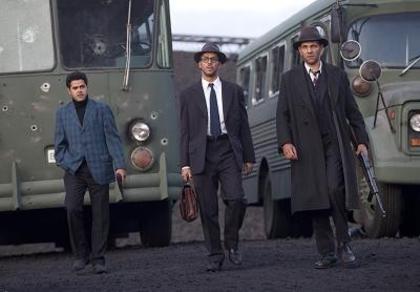
All are key to the gathering momentum of the NLF, and the movement's righteous fury fuels an escalating war of terror aimed at their French oppressors.
Bouchareb handles the complicated snarrative assuredly and the frequent set-pieces with aplomb.
Unlike Gilles Pontecorvo's brilliant Battle Of Algiers, this is not a film that's interested in objectivity or gritty documentary realism. Its stately violence is instead indebted to The Godfather movies and its oil-rich shadows and skulking men in hats recall Jean-Pierre Melville's masterly resistance thriller Army In The Shadows.
The traditional score, meanwhile, is quietly urgent, pressing the drama on towards its well-handled climax.
Unashamedly, this is a luxuriously crafted movie offering a tense and thrilling version of true events.
Admittedly the personal story of the three brothers doesn't have quite the emotional resonance you'd hope for, but the stylish, confident filmmaking brings forth its own pleasures and the closing archival footage of the day of Algerian independence packs a hefty punch.
Forty-eight years on, the subject matter remains heated enough for the security to be vastly increased around the Palais. SWAT teams were in place and all liquids were confiscated as journalists filed into the Lumiere theatre for the morning screening.
Bizarrely, Total Film had its banana confiscated.
Hopefully the Croisette will be clear of confusion tomorrow, ready for the final day of the competition. Tune in to find out...
- Jamie Graham
Day 9
The first piece of good news? Fair Game isn’t a remake of the Cindy Crawford/Billy Baldwin ‘90s clunker.
Good news part deux? It’s a return to form for director Doug Liman, recovering some of the kudos he flushed down a toilet called Jumper.
Almost a mea culpa for that 2008 mis-step, Fair Game – the only American film screening in Competition - is a Hollywood thriller that avoids popcorn pitfalls.
“I’m not feeling very 007-ish,” quips US diplomat Joe Wilson (Sean Penn), and the film sticks to his word. This is a war-on-terror movie that plays out in boardrooms and offices, with the briefest of cutaways to the battlefield.
When Joe pens articles accusing the Bush administration of fiddling information in order to justify the Iraq invasion, Washington hacks expose Valerie’s identity.
That’s when the flicker of tension becomes a flame, Liman earning comparisons with All The President’s Men in a tauter, grippier second half.
The key difference being that here, a marriage is at stake, Joe and Valerie’s family life fracturing from the escalating pressure.
Twinning their talents for the third time (after 21 Grams and The Assassination Of Richard Nixon ), Penn and Watts re-ignite their gym-toned chemistry.
Her cool intelligence is keenly complemented by his more hot-headed persona (the script by Jez and John-Henry Butterworth gives Penn a couple of righteous rants to chew on).
Liman’s direction is largely self-effacing; he keeps the camera mobile, but discreetly so, and employs a pale, sombre palette.
While he doesn’t entirely dodge a Hollywood ending – a sense of self-importance starts to creep in – Fair Game ’s overall integrity and intelligence banked solid applause from the Lumiere audience.
The evening prior saw Total Film join the modest queue (best thing about the fest winding down, the lines get shorter) for La Nostra Vita [Our Life].
Eyeing the poster beforehand – a relaxed image of father and son – Total Film had hopes of a bit of cheer to offset the many tales of woe we’ve seen this year. No such luck. The hero’s wife dies in childbirth within the first 20 minutes.
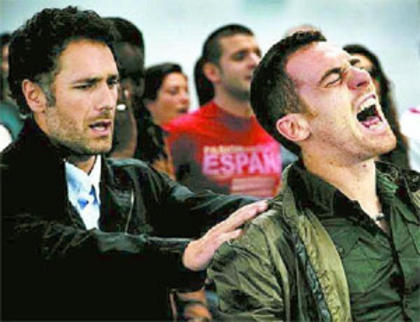
Still, there is a vibrancy and volatility to Daniele Luchetti’s movie that have been hard to find elsewhere.
The set-up suggests an Italian spin on recent Clive Owen vehicle The Boys Are Back , which explored the emotional tensions between a single dad and his sons.
But Luchetti is as interested in the workplace as the home, tracing the shady deals (blackmail, illegal workers) involved in protag Claudio’s (Elio Germano) race against time (and money) to fulfil a building contract.
Between the constantly weaving handheld camera and ALL THE SHOUTING, Luchetti’s film doesn’t want for energy.
But it is missing a certain degree of sympathy in its portrayal of Claudio. Germano’s performance is committed – the
funeral scene where he bellows along to his wife’s favourite tune leaves no doubt on that front – but lacks likeability.
As far as beleaguered parents juggling kids with dodgy business practices go, Javier Bardem in Biutiful remains the man to beat.
Head back tomorrow for Total Film’s penultimate Cannes round-up…
- Matthew Leyland
Day 8
Derek Cianfrance's capable debut Blue Valentine was met with warmth in Cannes just as it was in Sundance.
Juxtaposing scenes from the beginning and end of a relationship, this beautifully played, astutely observed American indie zooms in on house painter Dean (Ryan Gosling) and nurse Cindy (Michelle Williams).
The honeymoon period sees the charming, charismatic Dean doing all the chasing, wooing Cindy with his persistent wisecracks, compliments and, er, ukulele-playing. Their lovemaking is tender and urgent.
The gradual disintegration of the relationship gives us a booze-swilling Dean - replete with tinted glasses and a receding hairline - proclaiming his all-consuming love while failing to listen to his wife.
He's a great father to their young daughter but at the cost of romance. Their sex life is dead, their bodies unable to touch through all the layers of hurt, anger and resentment.
No blame is apportioned; time is the villain.
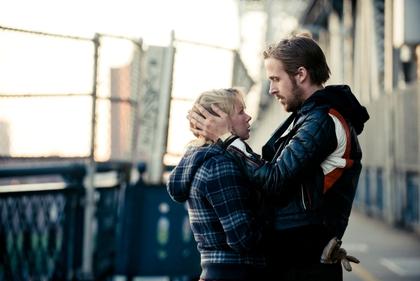
Williams is bold and terrific, especially in a destructive sex scene and a gruelling abortion scene, but it is Gosling who draws the eye with his magnetism and spontaneity.
Time after time he makes surprising choices, and you canít help thinking that this is an actor who could do 12 takes of a scene and give the director something different each time.
Just as Brando squeezed his rough hand into Eva Marie Saint's silk glove in On The Waterfront , Gosling suddenly scales a fence during a walk-and-talk scene or laughs at an inappropriate point in a conversation - that is, lives in the moment, make choices other actors wouldn't.
It's this freeform approach as much as his technical ability and tremendous screen presence that mark Gosling as the most exciting young actor on the planet.
And director of photography Andrij Parekh keeps his camera close to him at all times, capturing every facial tic and every shadow in his shifting eyes.
Blue Valentine tackles much the same topic as (500) Days Of Summer in a rather similar way, but it takes fewer missteps and has more to say - or at least says it with greater weight and thrust.
Playing in the Un Certain Regard category, Blue Valentine easily surpasses 80% of the films in the main competition.
Another debut is Two Gates Of Sleep , by 32-year-old British-born Alistair Banks Griffin.
Influenced by the likes of Gus Van Sant, Alexander Sokurov and Bruno Dumont, this languorous, occasionally lyrical drama sees two brothers (David Call and Funny Game US's Brady Corbet) hunt a deer, prepare a meal, tend to their ailing mother, and then haul her coffin across harsh but painterly terrain after she passes away.
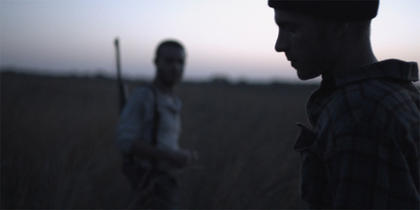
With minimal dialogue and a soundtrack full of the music of nature, Two Gates Of Sleep is stark and bold, defiantly an art film, its long times punctuated by spare, muscular edits.
Such aspirations are to be applauded and Griffin is undoubtedly a name to keep tags on.
But unlike the films of the aforementioned filmmakers or, say, Terrence Malick, Two Gates Of Sleep never truly transports the viewer to its rural landscapes. Its characters are too closed and its images never quite tactile enough, or poetic enough, to sweep audiences along.
Brooding, poetic landscapes also dominate Schastye Moe (My Joy), a competition film being described on the Croisette as "the Russian trucker movie".
But Russian trucker Georgy (Viktor Nemets) only features at the start of the picture, the action leaving one character to follow another in much the way as Richard Linklater's Slacker and Waking Life , or Luis Bunuel's The Phantom Of Liberty .
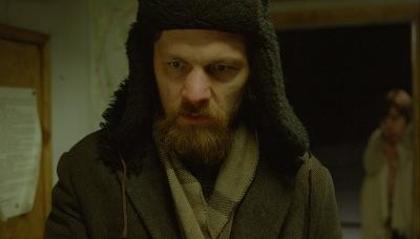
Hard to follow, My Joy (oh, the irony...) serves up truncated narratives full of anguish, pain, humiliation, alienation and vicious murder. The palette is grey and dark green, the only emotional response one of despair. Well, that and mild boredom.
Much better is Lee Chang-Dong's Poetry , a patient and poignant study of the quiet and sensitive Mija (Yun Junghee), an elderly woman living in a small suburban city located along the Han River.
Mija's selfish teenage grandson, it transpires, took part in a gang rape. The miserable old man she cares for wants her to screw him before he dies. And she begins the film by stumbling upon the aftermath of a suicide.
But Poetry is not another ironic title a la Biutiful and My Joy . Mija really does seek out the beauty in life and, on a more literal note, she enrols in a poetry class in an attempt to enrich her life, to express herself.
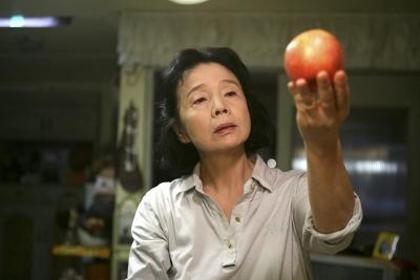
Powered by a humble and humane performance from Junghee, Poetry unfolds at a gentle, leisurely pace and never forces its drama. Its storytelling is clean and potent, its visuals subtly desaturatured to reflect the emotional landscape.
Shot mainly in medium shots with a minimum of fuss, Lee's film concentrates on bringing character and story to the forefront. It consequently emerges as one of the stronger pictures in a disappointingly weak competition, for it makes us care.
Come back tomorrow for write-ups on Day 9. Who knows, maybe we'll have a happy film to report on...
- Jamie Graham
Day 7
Far be it for us to come over all Land Of Hope And Glory, but it’s good to see our directors keeping the British end up.
Following Mike Leigh’s Palme d’Or front-runner Another Year , Stephen Frears has made a strong showing with his latest, Tamara Drewe .
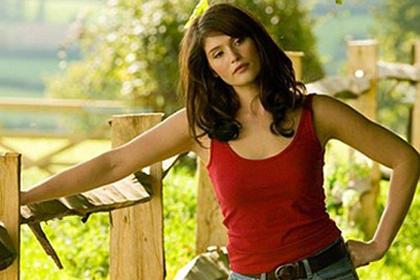
Back on track after the snoozy Cheri , it finds the practised genre-hopper adapting a comic-strip – albeit one serialised in the Guardian and inspired by Thomas Hardy’s Far From Madding Crowd .
All the same, it’s a mischievous lark that promises great things in its opening, sketching with brevity and levity denizens of a Dorset village, from philandering novelist Nicholas (Roger Allam) to sleb-obsessed teens Jody (Jessica Barden, firing out swears like she’s at an audition for Kick-Ass 2 ) and Casey (Charlotte Christie).
Into the fray slinks former local Tamara Drewe (Gemma Arterton), a one-time ugly duckling flaunting new confidence – and a new nose – who’s back in town to sell her childhood home.
Soon enough a love triangle clicks into place involving Tamara, old flame Andy (Luke Evans) and new flame Ben (Dominic Cooper), a rock drummer rinsed in guy-liner. Other entanglements await in the wings, the busy plot beginning to overheat as it heads for a black-slapstick wrap-up.
Arterton is sweet, bright and as gorgeous as the country vistas that backdrop every shot. But as protagonist, her emotional thunder is quietly stolen by a terrific Tamsin Grieg, marrying sensitivity to sheer comic class as Nicholas’ long-suffering wife.
If the film doesn’t quite live up to its dynamite intro, it never dips below a certain standard either; lively and lithe, it’s undoubtedly smarter than your average Brit-com.
After basking in images of a balmy Britain, Total Film kept its sun hat on for the Tuscan setting of Abbas Kiarostami’s return to the Competition, Certified Copy .
It’s also a return to more traditional storytelling for the Iranian director, whose last film Shirin comprised close-ups of cinemagoers enraptured by an unseen screen.
One of those viewers, Juliette Binoche, takes top billing here as a French gallery owner who may or may not be married to English scribe William Shimell.
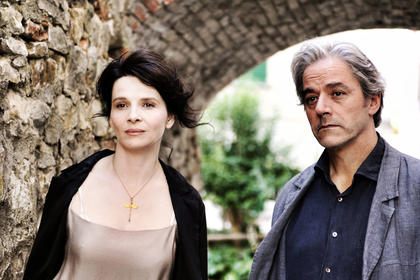
A walking-and-talking two-hander, it plays on the surface like a middle-aged third entry in the Before Sunrise/Sunset series.If only there were more of Ethan Hawke and Julie Delpy’s cherishable chemistry.
The multi-lingual battle-of-the-sexes banter sparks in fits and starts, and Binoche (whose image is all around town on the Festival’s official poster) exudes her usual easy elegance and warmth.
But it’s hard to warm to Shimell (a feted opera singer making his screen debut), whose stuffy self-importance grows colder and more distant as the story progresses.It’s telling that the most engaging scene sees Shimell step off-screen while Binoche compares notes with a straight-talking café proprietress.
When TF next entered a screening room it found a director with bigger fish to fry.
Based on a 1996 incident, Xavier Beauvois’ Des Hommes Et Des Dieux [Of God And Men] explores the decision by a group of French monks to remain in their Algerian monastery despite threats from Islamic extremists.
Despite the severity of the situation, Beauvois puts a low premium on suspense, lending greater weight to observational scenes of the monks’ day-to-day lives.
As such, the film engrosses rather than rivets. And even though we spend a good length of time with them, the monks are largely indistinguishable, bar two standouts: anxious leader Lambert Wilson and wise, wise doctor Michael Lonsdale.
Moving in places, amusing in others – it’s not often you hear one monk tell another “Fuck off” – it’s a respectable if unremarkable entry in the Competition.
Tune in tomorrow for the inside scoop on – have a guess – Cannes 2010: Day 8…
- Matthew Leyland
Day 6
Takeshi Kitano's yakuza drama Outrage proved an incredibly violent way to spend a Sunday evening.
Finger-lopping, tongue-cutting, cheek-gashing, decapitation, bullet-riddled torsos and chopsticks rammed into the ears... Outrage has it all, again and again.
It's as if Kitano, now 63, set out to show the Oldboy generation of Asian filmmakers how violence should be done, much as Scorsese fashioned the frenzied GoodFellas as a response to the MTV generation of American filmmakers.
Essentially the tale of the escalating war between two rival Yakuza clans, Outrage plays like a Japanese Fistful Of Dollars , all greed and duplicity.
Nearly every scene in the second half of the movie concludes with one or more deaths, the corpses piling up with such ingenuity and rapidity that the viewer can't help thinking this is not a drama after all, but rather some kind of abstract, blacker-than-black comedy.
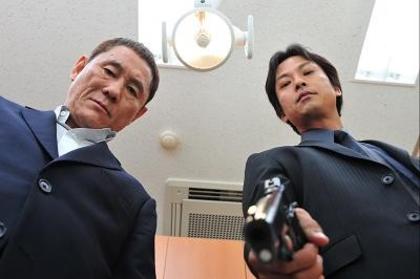
Perhaps Kitano is suggesting that the Yakuza no longer live by any definable code, that honour and loyalty has been replaced by avarice and cruelty, each man for himself.
Yet there's no escaping the glee pouring out of every kill scene, and the nagging feeling that Outrage fires moral blanks.
Still, at least it looks good doing it, the composed visuals gleaming cold as men in black suits drive polished black cars and point glinting guns.
Easing gingerly into its thin bed in a flat full of fat snores, Total Film couldn't escape the memory of a red-faced Yakuza attempting to cut off his pinkie with a blunt craft knife.
And the next morning we were greeted with the sight of Javier Bardem pissing brown blood into a white toilet as cancer devoured his insides.
Ah, sunny Cannes, land of dreams and glamour...
Bardem is the star of Alejandro Gonzalez Inarritu's fourth drama, Biutiful , a tale of poverty, despair, crime and slow, painful death set in the grainiest, grubbiest Barcelona youíll ever see of film.
Uxbal (Bardem) is a single father raising two young children (his damaged ex-wife is an addict who now sleeps with his brother). He has a heart and scruples and yet he resorts to crime to make a seedy living, exploiting illegal immigrants and trading in knock-off goods.
Then Uxbal learns that he has two months to live.
Don't expect any miracle recoveries a la Funny People , or important life lessons learned.
Do expect the long, hard days to spin out pretty much as they did, in poverty and pain. Only now there is also the prospect of the kids being left to the care of their abusive mother.
Like Amores Perros, 21 Grams and Babel, Biutiful is comprised of a relentless flurry of fast, hand-held shots, but here the focus is very much on one story: Uxbal's.
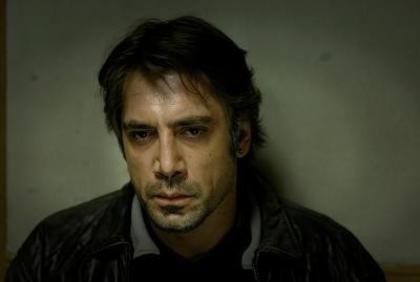
Bardem is magnificent and brave, his soul-sick eyes and thin, stooped shoulders carrying the movie. Not many actors would strip shakily down to their nappy before teetering into bed.
Technically, Biutiful is the most impressive film to show in competition so far, all jagged energy and striking compositions.
Inarritu has an eye for beauty and squalor, often clashing the two: smoke stacks belch out rolling clouds in front of a huge setting sun just as the filmmaker always finds hope and goodness among the degradation.
Yet it's Inarritu's formidable technique that at times gets in the way of audiences making an emotional connection.
For while Biutiful is the most ambitious, formally complex and, arguably, impressive film we've seen in competition so far, it falls behind the simpler pleasures (and woes) of Mike Leigh's Another Year . Sometimes you need to strip away the sound and the fury to find the significance.
Tune back in tomorrow when we'll bring you the highlights of Cannes 2010: Day 7...
- Jamie Graham
Day 5
If Cannes gave an award for nipple count, Gregg Araki’s new film would be, um, points ahead.
Clearly made for buttons, Kaboom makes ample use of the cheapest special effect available – gratuitous nudity.
Hot bodies, hot colours, cool soundtrack: it’s a gleeful return to the anything-goes comic nihilism of the uber-indie director’s ‘teen apocalypse’ trilogy ( The Doom Generation, Totally Fucked Up, Nowhere ).
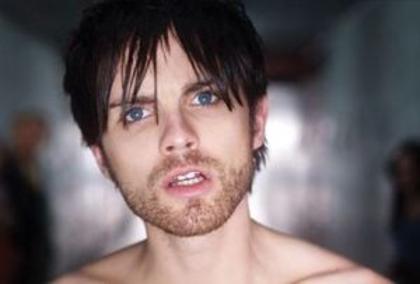
Don’t be fooled by the opening dream sequence; its portentous tone is soon torpedoed by tongue-in-cheek(s) sex-ploits centred on college boy Smith (Thomas Dekker).
The rutting is punctuated by Donnie Darko-esque excursions into strangeness (men in animal masks, witchcraft, murder).
Eventually these background fits of freakery seize the foreground as Kaboom warps into a full-blown mock-alyptic conspiracy thriller.
The manic tone-shifts are underpinned by a pervasive good-naturedness that won a few happy cackles from the Cannes crowd.
Some will see Kaboom as a regression from the maturity of 2004’s Mysterious Skin , but the least you can say for Araki is that he has the endless energy of the adolescents he’s so fascinated by.
His film’s certainly tons more fun than The Princess Of Montpensier , a stodgy period epic from Competition veteran Bertrand Tavernier (who won Best Director in ’84 for Un Dimanche A La Campagne).
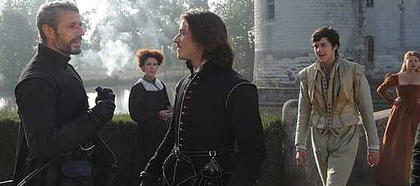
Braiding religious warfare with romantic intrigue in 16th-Century France, it’s handsome, intelligent, well-acted and creaks like a haunted mansion.
But don’t just take our word for it; ask the French film critic who told us post-screening, “It doesn’t belong in the Competition… I preferred Robin ‘Ood!”
Far worthier of the Palme d’Or shortlist is Un Homme Qui Crie (A Screaming Man) , an understated Chad-set war drama that also doubles as the Festival’s umpteenth father and son story.
Here, the male parent is hotel pool attendant Adam who, under pressure to make a contribution to the government’s war effort against local rebels, allows the army to take his son Abdel.
Mahamat-Saleh Haroun’s film burns slow but resonant, working the old show-don’t-tell maxim to poignant, poetic effect.
It’s perhaps too low-key to have more than an outside chance of taking home the big prize, but its quiet virtues deserve attention.
Come back tomorrow for our verdict on the latest from A mores Perros director Alejandro Gonzalez Inarritu…
- Matthew Leyland
Day 4
Total Film loves double-bills.
Sometimes we watch two cyborg films back-to-back. Sometimes we watch two ninja films back-to-back.
Today, Cannes encouraged us to watch two legendary old duffers focusing on central families living in London that are essentially retreads-of-their-previous-ilms films back-to-back. Sadly, only one featured a cameo from Come Dine With Me (weirdly, that was Woody Allen’s). Sadder still, only one was the equal to previous entries on its auteur’s CV.
That prize goes to Mike Leigh’s Another Year – a moving glimpse into the lives of geologist Tom (Jim Broadbent) and counsellor Gerri (Ruth Sheen) and their warm-hearted interactions with their friends and family.
Split into seasonal chapters – introduced by shots of Tom and Gerri tending to their allotment in rain, sun and snow – and taking place mostly in Tom and Gerri’s kitchen, Another Year felt like going home for Total Film.

But, despite the constant cups of tea consumed by the kitchen sink, this is no kitchen sink drama; it’s as full of warmth, love and good humour as our own families, and we could have easily spent more than the two hour duration in the company of its characters.
And, if Broadbent doesn’t win an acting award for his portrayal of jovial patriarch Tom, it’s a travesty that will see us set fire to the Lumiere.
Another Year is no boundary pusher for Leigh, but it’s a welcome entry into his usual ‘quietly dignified characters getting on with it’ oeuvre, and we can’t wait to see it again.
Sadly, the same can’t be said of Woody Allen’s latest romantic farce, You Will Meet A Tall Dark Stranger, which is more Melinda & Melinda than Vicky Christina Barcelona.
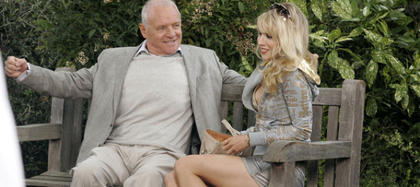
Entertaining enough, it feels like a relic from another age, with Viagra jokes and fake psychic subplots driving a messy narrative to a sudden conclusion. It feels like a film without an ending, or, indeed, a point.
But the stunning cast kept us watching, with Josh Brolin and Gene Hunt (seriously) doing their best Allen impressions. We enjoyed it while it lasted, but we probably won’t be revisiting it when we get back to blighty.
Tomorrow sees Takeshi Kitano’s Yakuza epic Outrage hit the Debussy. We’ve got a feeling it’ll be a return to Hard Boiled form, come back tomorrow to find out if we were right…
- Sam Ashurst
Day 3
No Palme d’Or contenders on offer today – but Total Film did see two of the festival’s hottest tickets.
Sadly, one of them turned out to be damp squib. We’ll get to it in a few paragraphs; but first, the debut screening of Wall Street: Money Never Sleeps .
Oliver Stone has disappointed us plenty in recent years: the first-base W. , the Ron Howard-esque World Trade Center , the unspeakable Alexander .
Though unlikely to achieve the iconic currency of the 1987 original, Wall Street 2 proves Stone is still a bankable talent.
While it swaps ‘80s materialism for ‘00s meltdown, Money Never Sleeps works many of the same angles as its predecessor: mentor-protégé relationships, Faustian bargains, idealism vs pragmatism.
It’s also awash in split-screens, along with other fancy flourishes that suggest an MTV/CNN mash-up.
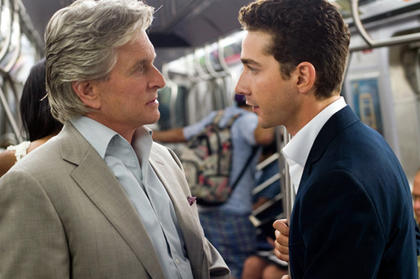
Luckily, Stone isn’t trying to compensate for his cast, who really bring home the bacon.
Shia LaBeouf is bright, hungry and – for all his cocksureness – sympathetic as a young trader in love with Winnie (an emotive Carey Mulligan), estranged daughter of finance kingpin cum ex-jailbird Gordon Gekko (Michael Douglas).
Josh Brolin pumps up one of the film’s sketchier roles as a corporate raider who attempts to take LaBeouf under his wing, while a brief Frank Langella gives a masterclass in making a little go a long, devastating way.
But of course, the deal-maker is Douglas – reprising his signature role with familiar devilish charm as well as new-found shades of humility.
Has the leopard changed his spots? Stone keeps us dangling a while, the plot tugging in multiple directions, at times to its detriment.
Still, at a leisurely two hours 16, it doesn’t outstay its welcome.
Which is more, alas, than can be said for Hideo Nakata’s Chatroom , showing in the Un Certain Regard strand of the festival.
In real life, the internet is a place where people can meet their soulmates, reconnect with long-lost friends and get excellent bargains on boxsets.
Yet for some reason, in movies the world wide web is always portrayed as a wicked, wicked wasteland.
Rather than buck the trend, Chatroom bear-hugs it with a tale of net-based duplicity and depravity.
The Ringu director initially seems to be putting a cyber-spin on The Breakfast Club , as five disparate teens hook up in a chatroom, their online conversation visualised as an offline face-to-face encounter.
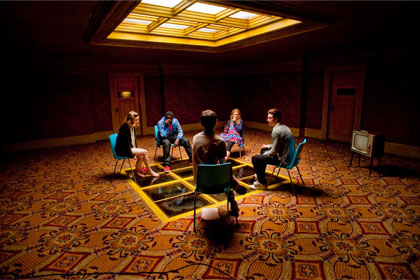
Soon enough, though, it skews into psycho-thriller territory as the most dysfunctional of the group, William (Aaron Johnson) begins to prey on the most vulnerable, Jim (Matthew Beard).
The opening shot of William toying with a plasticine figure sets the unsubtle tone, compounded by a strident score.
Despite a couple of animated interludes (one involving a South Park -esque shagging Gandhi), the film’s stage origins are betrayed by theatrical performances.
It’s all terribly po-faced – a self-conscious yoof-of-today thriller that feels like the work of a far less experienced film-maker.
Roll on tomorrow, when we’ll be bringing you up to speed on the latest works from two old Cannes hands, Mike Leigh and Woody Allen…
- Matthew Leyland
Day 2
After standing on the red carpet for the Robin Hood party for two hours last night, in the sodding rain, only to have Russell Crowe walk straight by and Cate Blanchett not show up, Total Film this morning sat down to Wang Xiaoshua's bleak, blearily lensed drama Rizhao Chongqing (Chonqing Blues).
Who says Cannes is full of glamour?
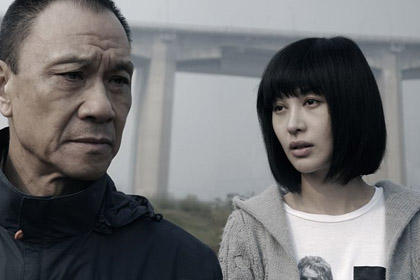
Rizhao Chongqing sees sea captain Lin (Wang Xueqi, all hunched shoulders, hooded eyes and stillness) return from a six-month voyage after his 25-year-old son Lin Bo (Zi Yi) is killed by the police while holding a girl at knife point.
Determined to discover to the truth, Lin sets about talking to all the players involved in his sonís death: the cop who shot him, the doctor who attended the scene, the ex-girlfriend, the best mate...
Recalling not just In The Valley Of Elah (minus the bludgeoning finale) but - structurally, at least - Citizen Kane and Rashomon , Rizhao Chongqing always holds the attention but never truly grips.
It is a film short on revelation and despair, the events unfolding with a certain predictability. And given it deals with grief and estrangement, guilt and regret, the emotional ëdevastationí remains low-key throughout.
Yet director of photography Wu Di delivers some handsomely bleak images, his patient shots painting the teeming city of Chongqin in greys and blues.
The tone is set with the opening spectacle: pools of rain gathered on the rusted roof of a cable car as it inches its way heavenwards with the congested city retreating below.
Solid as it is, Rizhao Chongqing is not a film that should be troubling the Jury when they hand out prizes - though its estranged-father-and-son theme might well chime with Jury boss Tim Burton, whose own films often deal with the same subject.
Emerging blinking into the sunlight, Total Film spent the early afternoon hanging around with half-naked zombie girls on the beach (what else?)...
...then it was back into the darkness to watch Im Sangsoo's The Housemaid , in which the titular helper, Euny (Jeon Do-Youn), is seduced by the arrogant master of the house, Hoon (Lee Jung-Jae).
Crisp, elegant and ominous, the first 40 minutes is more in line with classy French thriller The Page Turner than heated Hollywood melodramas such as The Hand That Rocks The Cradle .
The sexual tension is palpable and the infidelity, when it inevitably arrives, erotically charged.
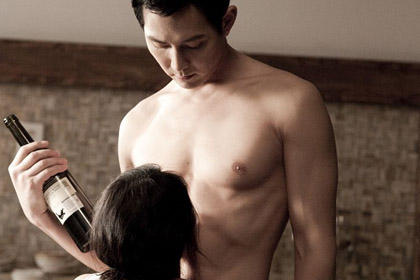
For much of the second half, however, The Housemaid loses its (ahem) thrust. Its revelations lack force, and its shifting power dynamics fail to intrigue.
Then, in a quite startling final 10 minutes, the film casts off its restraint and finesse and instead goes for broke. Perhaps it is reality we are watching, perhaps fantasy? No matter - The Housemaid morphs into some sort of Chinese giallo - gloriously demented, over the top.
And to top it all, the bizarre coda is straight out of a David Lynch movie.
The smattering of applause at the end suggested some critics went with it; the rest filed out looking unconvinced and bewildered.
Then it was back to the Official Total Film flat/cave for us, to rest up and recharge for Day 3.
We're looking forward to a big day tomorrow, with Oliver Stone's Wall Street: Money Never Sleeps and Hideo Nakata's Chatroom to look forward to, among other things.
Away we go then, to dreams of mostly naked Zombie women , and nightmares involving Robbie Coltrane in a bear suit ...
Tune in tomorrow for Day 3 of our Cannes 2010 coverage. In the mean time, check out Twitter , Facebook , and leave a comment below about what you've liked so far!
- Jamie Graham
Day 1
Cannes 2010 has officially begun – with the arrival of history’s most famous outlaw.
Total Film bounded down to the Palais for the 10am press screening of opening movie Robin Hood .
The screening took place not at the Grand Theatre Lumiere – where big films usually take their bow – but at the Salle Debussy.
Although a smaller venue, there were still a few empty seats – possibly because some of the English journos had caught earlier screenings back home.
Closing-credits reaction? Bit muted. Neither jeers nor cheers as everyone filed politely to the exits. Still, there were a few audible giggles in the right places, suggesting some goodwill towards Messrs Scott and Crowe’s arrow-flinging reinvention.
Only one other film was screened on Day 1 – but it was the first of this year’s Palme D’Or hopefuls. Tournée [On Tour] is written/directed by and stars Mathieu Amalric, best known in the UK for being the underused baddie in Quantum Of Solace.
The charismatic Frenchman plays a telly producer turned theatre impresario shepherding a group of American showgirls on a tour of France.
The ghosts of Amalric’s past inevitably pay a visit when he pitches up in his former haunt of Paris.
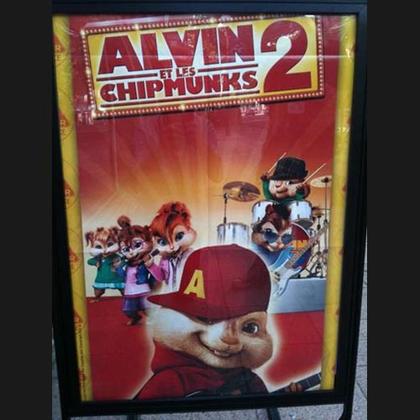
The film’s a non-sensationalist look at the lower-rent side of showbiz whose tang of authenticity evokes the likes of The Singer and The Killing Of A Chinese Bookie (though it’s funnier than both).
Opinion was divided in the TF camp – one of us loved it, two of us wanted a shorter running time and more emotional oomph. Still, the warm applause at the end of the screening felt well deserved.
In other Cannes news, the Total Film lift is still slower than a snail on crutches. But hooray for whoever put up the giant neon arrow guiding us to our apartment.
Tune in tomorrow to see what else has been lighting up our lives…
- Matthew Leyland
Day 0
Cannes 2010 is finally here. This year marks the 63rd edition of the festival, and Total Film is in town...
Nothing, of course, has happened yet – events kick-off at 10am tomorrow with the world premiere of Ridley Scott’s Robin Hood. Let this first blog be a series of initial observations, then:
1. The festival headquarters are busier than last year, with any and all volcanic ash clouds proving a piddly deterrent compared to 2009’s recession. There goes any chance of getting into a restaurant on Friday or Saturday night, then…
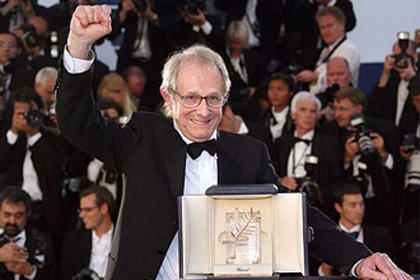
2. The late inclusion of Ken Loach’s Route Irish has caused a buzz of excitement. The competition badly needed another name director, and Loach – who of course scooped the Palme d’Or in 2006 with The Wind That Shakes The Barley – will have the likes of Inarritu, Kiarostami, Kitano, Leigh, Tavernier and Liman looking over their shoulders.
3. The Total Film flat is bloody miles away. But it has a hot tub. Our suggestion that we interview Gael Garcia Bernal in said hot tub was met with stony silence. Same when we asked about Mike Leigh.
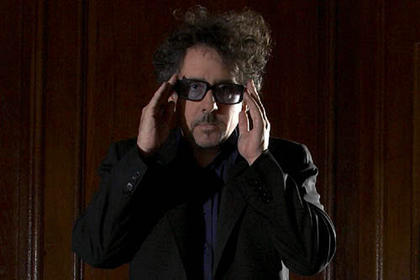
4. Thierry Fremaux, General Delegate, has promised diversity and quality in this year’s line-up, and expressed that we should expect a “chimerical and yet coherent world” – as you might expect when Tim Burton is acting as President of the Jury.
5. Total Film is on the 6th Floor and the lift door takes a ridiculously long time to shut. This will be the thing to break us.
And that’s it. Well, what do you expect – we’ve only been here a couple of hours. Nothing’s happening.
Tomorrow, it will be different…
- Jamie Graham
Jamie Graham is the Editor-at-Large of Total Film magazine. You'll likely find them around these parts reviewing the biggest films on the planet and speaking to some of the biggest stars in the business – that's just what Jamie does. Jamie has also written for outlets like SFX and the Sunday Times Culture, and appeared on podcasts exploring the wondrous worlds of occult and horror.


